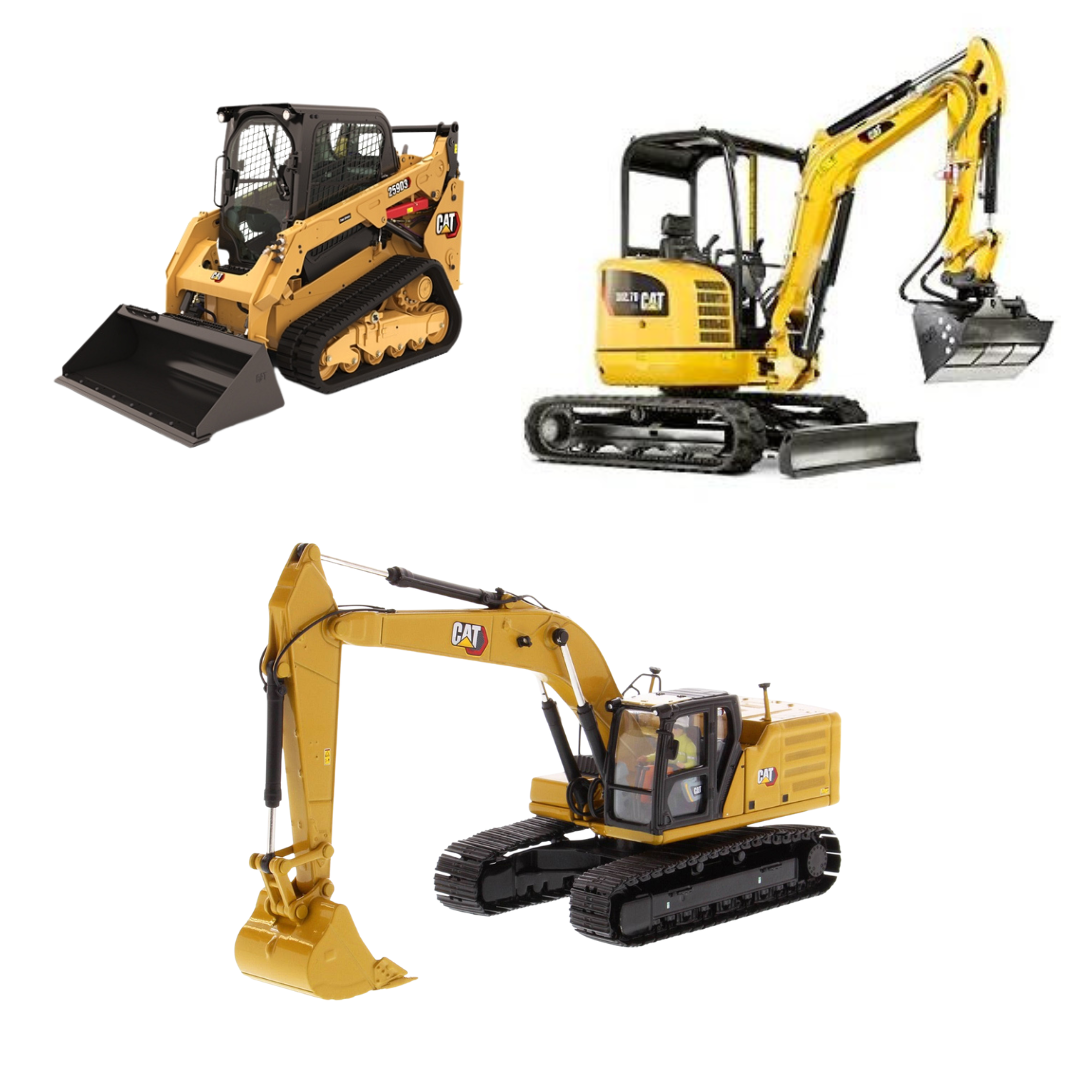Forklift Rental: Heavy Lifting Equipment for Warehousing and A lot more
Forklift Rental: Heavy Lifting Equipment for Warehousing and A lot more
Blog Article
Optimize Your Budget Plan by Comprehending the Expenses Connected With Building Equipment Leasings
Recognizing the complete extent of costs connected with construction devices rentals is vital for maximizing your spending plan. While the first rental charge might appear straightforward, numerous added expenses-- such as transportation, fuel surcharges, and maintenance-- can swiftly accumulate, impacting your economic preparation. Being conscious of numerous charges and the details of rental contracts can help avoid unanticipated monetary problems. What approaches can be used to properly handle these expenses and guarantee a much more reliable rental experience?
Introduction of Rental Expenses
When considering construction equipment rentals, recognizing the associated expenses is critical for efficient budgeting and task preparation. Rental prices can differ considerably based on a number of aspects, consisting of tools kind, period of service, and place. The preliminary rental charge typically mirrors the devices's market demand and its connected operational abilities, influencing the overall expenditure.
Along with the base rental price, ancillary expenses might emerge, such as transport costs, fuel surcharges, and maintenance charges. It is vital to make up these added expenses to precisely assess the overall price of renting out tools. The rental duration can affect prices; longer leasings might certify for reduced prices, while temporary services might incur higher day-to-day fees.

Failure of Rental Rates
A thorough understanding of rental rates is necessary for contractors and project supervisors intending to optimize their budget plans. Rental prices for construction devices usually contain a number of components, consisting of base prices, time-based fees, and use charges.
Base rates are the core charges related to the rental of the equipment, frequently established by the type and size of the equipment. These prices can vary significantly, influenced by factors such as equipment demand, accessibility, and regional market trends. Time-based costs, which may be daily, weekly, or monthly, serve to fit different job timelines and rental durations.
Additionally, rental prices might consist of use charges, which apply when devices is utilized past a defined threshold, guaranteeing that the rental company can account for damage. Seasonal need variations can also affect rental rates, with peak construction periods normally commanding higher prices.
Additionally, understanding the rental business's policies relating to upkeep and insurance coverage can supply more insight into the overall expense structure. By assessing these parts, contractors can make educated decisions, guaranteeing the choice of rental tools aligns with both project requirements and spending plan constraints.
Added Fees to Consider
Comprehending the complexities of added costs is essential for specialists to handle their general rental expenditures successfully. Beyond the basic rental rates, numerous extra charges can dramatically influence the overall price of devices service. These charges typically include delivery and pickup charges, which can differ based upon range and logistics associated with delivering the equipment to and from the job website.
Additionally, some rental business may enforce gas additional charges if the devices is returned with much less gas than when rented. It is also vital to recognize prospective cleansing fees, especially for specific devices that calls for comprehensive upkeep after use.

Thoroughly assessing the rental agreement and clarifying these added fees in advance can assist contractors avoid unforeseen prices and guarantee that spending plans stay undamaged throughout the project lifecycle.
Maintenance and Repair Expenses
Routine maintenance and repair expenditures are commonly forgotten variables that can considerably influence the general price of construction devices leasings. When leasing equipment, it is critical to take into consideration not only the rental charges yet also the possible prices linked with maintaining the machinery in ideal operating condition.
Lots of rental companies include basic maintenance as part of the rental contract; however, extra comprehensive repair work or unanticipated malfunctions can cause extra expenditures. It's important to assess the rental contract carefully to understand what maintenance solutions are covered and what duties fall on the renter.
Moreover, equipment that is not well-maintained can lead to inefficiencies at work website, potentially triggering delays and boosting task costs. To mitigate these risks, it is suggested to carry out routine evaluations and maintain open communication with the rental copyright pertaining to any problems that occur throughout use.
Insurance and Obligation Expenses
Insurance road grading equipment coverage and obligation expenses are important parts that can dramatically impact the overall cost of building and construction equipment leasings (equipment rental company). These prices make certain that both the rental firm and the client are protected from prospective monetary losses developing from accidents, damage, or theft during the rental duration

Additionally, customers must be aware of any kind of deductibles or exemptions in the insurance coverage, as these can impact potential out-of-pocket expenditures. Recognizing the terms and conditions of any type of insurance coverage is essential to avoid unanticipated expenses. Ultimately, budgeting for insurance and responsibility expenses can assist guarantee a find out here now smoother rental experience and safeguard against economic risks related to construction tasks.
Final Thought
In conclusion, a detailed understanding of the prices associated with building and construction equipment leasings is essential for efficient budget management. Inevitably, notified decision-making regarding tools leasings contributes to the total success of building endeavors.
Rental expenses can differ dramatically based on several variables, consisting of devices type, duration of leasing, and location (forklift rental). The rental period can impact rates; longer services may qualify for discounted prices, while short-term services might sustain higher daily charges
By conducting complete study and involving with credible rental business, contractors can properly navigate the intricacies of rental rates, ultimately maximizing their monetary resources.
Past the conventional rental prices, different extra fees can significantly affect the total cost of equipment leasing. Rental business commonly provide liability insurance that covers injuries to third events or damage to home, while equipment damages insurance policy can cover the price of repair services or replacement if the leased tools is damaged.
Report this page